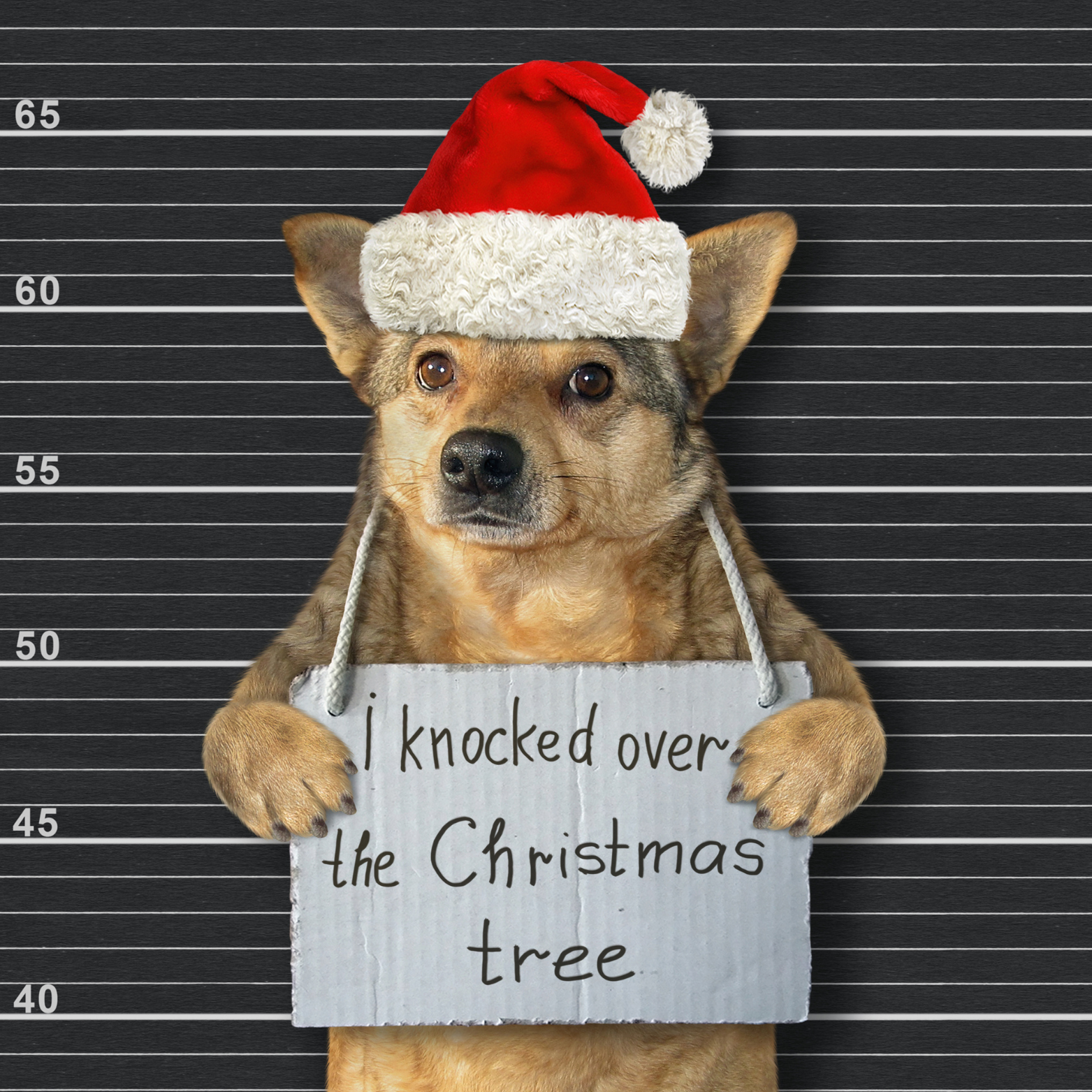
It's the most wonderful time of the year - and we aim to help keep it that way by sharing our pet holiday safety tips with you! Amidst the hustle and bustle and the holiday cheer, dangers lurk for our four-legged friends.
Toys, electronics, and wrapping paper are packed in the stores in December. Including our pets in the holiday celebration is fun, but watch for seasonal hazards.
Including pets in seasonal festivities is trendy and fun. Each pet has a paw print stocking at our house, which we stuff with toys and chews on Christmas morning. They get other presents like a new collar or bed if they're lucky. We've received adorable holiday cards starring beloved pets. For example, one year, we received a card with the family Boxer dressed as an elf and another with the whole family in Santa hats, including their Golden Retrievers! The possibilities are endless!
Rockin' around the Christmas tree or Menorah
The Christmas tree presents several avoidable hazards. Ensure the tree is well anchored so it cannot be pulled or knocked over by a climbing cat or rambunctious dog. Keep the power cords protected from cord-chewing pets. Hang ornaments that resemble toys out of reach. Avoid loose tinsel or ribbon that can be eaten and cause a blockage in the digestive system that can require emergency surgery. Consider putting strung popcorn up high or leaving it off altogether. A lit Menorah is a fire hazard; ensure your pets can't knock it over.
Deck the halls with toxic holiday plants?
Four of the most common holiday plants can be toxic to pets. Amaryllis plants are popular during the holidays but contain poisonous substances that can leave our pups feeling unwell. If consumed, our dog may experience severe gastrointestinal upsets such as vomiting, abdominal pain, and loss of appetite. Additionally, the stalks, flowers, and bulbs contain compounds called "phenanthridine alkaloids," which are toxic to cats. The highest proportion is in the bulbs. Eating amaryllis can cause vomiting, changes in blood pressure, tremors, and seizures in both cats and dogs. If enough holly is ingested, it can cause an upset stomach and symptoms similar to a caffeine overdose. Fortunately, holly isn't very tasty, so toxicity is uncommon. Mistletoe can cause upset stomach and cardiovascular signs if a substantial amount is consumed. Lastly, Poinsettia can cause drooling, vomiting, and diarrhea if enough is eaten. Poinsettia toxicity is typically exaggerated and, in reality, poses only a mild concern.
While visions of sugar plums, raisins, and chocolate danced in their heads
Chocolate is very toxic to dogs; however, the dog's size and the chocolate's darkness determine whether or not it will cause a severe problem. For example, dark chocolate is more toxic than milk chocolate, and a Chihuahua is more likely to be symptomatic than a Saint Bernard. Chocolate can also cause seizures in dogs and, in high doses, can be fatal. Raisins can be harmful to dogs and cause acute kidney failure. Keep it all out of reach.
Best wishes for a healthy, happy holiday to you and your pets!







